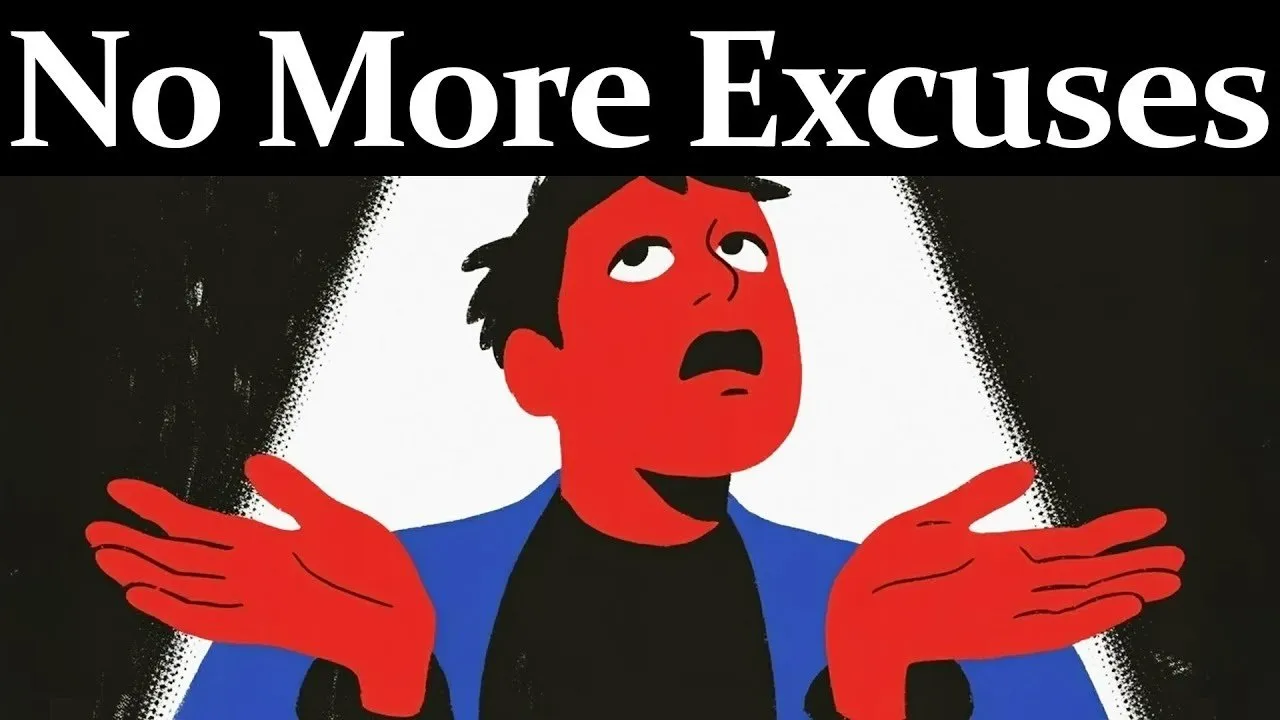Table of Contents
Rachel Maddow doesn't mince words when she calls Trump's upcoming meeting with Vladimir Putin in Alaska an "abject humiliation" for America. During a recent appearance on Kara Swisher's Pivot podcast, the MSNBC host delivered one of her most stark assessments yet of where we're heading as a country. And honestly? Her historical perspective makes the current moment feel a lot more precarious than most people realize.
Key Takeaways
- Trump's Putin summit represents the first time a Russian leader has visited U.S. soil since 2007, handing Putin a massive diplomatic victory before talks even begin
- The America First rhetoric Trump champions has disturbing historical roots in 1930s Nazi propaganda efforts that infiltrated Congress
- Current military deployments in American cities mirror authoritarian playbooks from other countries, normalizing domestic troop presence
- Institutional leaders are failing to resist authoritarianism, while grassroots protests emerge as the primary defense of democratic values
- Media entrepreneurship is thriving despite industry doom, with independent voices gaining unprecedented reach and influence
- Trump's census manipulation threats could provide justification for delaying or canceling the 2026 midterm elections
- The Supreme Court faces pressure to overturn marriage equality, though the current case may not provide the right legal vehicle
- Right-wing infighting between figures like Laura Loomer and Marjorie Taylor Greene reveals inherent instability in extremist movements
The Alaska Meeting: Diplomacy or Capitulation?
Let's start with what Maddow calls the most immediate crisis. Trump's decision to meet Putin in Alaska isn't just unusual foreign policy—it's a fundamental break from how American presidents have handled Russia for nearly two decades. "This is something that no American president has done in 18 years," Maddow explained. "In many countries in the world, if Vladimir Putin stepped foot on their soil, he'd be arrested and dragged off to the Hague."
The optics alone tell the story Trump doesn't want you to focus on. While Canada faces 35% tariffs, Russia mysteriously avoids any trade penalties whatsoever. Trump promised severe consequences if Putin didn't end the Ukraine war by his deadline, but instead of punishment, Putin gets a personal invitation to American territory and a one-on-one summit without Ukrainian representation.
"Nothing about Ukraine without Ukraine," as Ukrainian officials say. Yet here we have what amounts to divorce proceedings where one party isn't even allowed in the courtroom. Maddow's assessment cuts deep: "That would be a victory" if Zelensky somehow emerged from a supply closet to join the talks. The fact that this seems impossible rather than inevitable shows how completely Trump has already conceded Putin's position.
What makes this particularly galling is the historical precedent. Remember when Obama got crucified for his "red line" moment with Syria? That supposed failure still gets mentioned 12 years later as evidence of weak leadership. But Obama actually went to Congress for authorization—you know, how our system is supposed to work. Trump, meanwhile, is literally flying across the country to give Putin exactly what he wants while calling it tough negotiation.
When "America First" Meant Something Much Darker
Here's where Maddow's historical research becomes absolutely crucial for understanding what we're dealing with. The America First Committee wasn't just some random isolationist group from the 1940s—it was a massive organization that existed specifically to prevent America from helping Britain fight off Nazi invasion.
The parallels don't stop at the slogan. "That phrase, 'plowing under every fourth American boy,' originated in Berlin, in Goebbels's office, and then made its way into speeches of anti-FDR America First American politicians," Maddow noted. We're talking about literal Nazi propaganda being distributed through Congress using the Congressional franking privilege to mail millions of pieces to American homes.
This wasn't some fringe operation either. The America First Committee included respectable figures and was founded by the heir to the Quaker Oats fortune. But it kept "slipping into kind of liking the Nazis and blaming everything on the Jews." Sound familiar?
After Pearl Harbor dissolved the original committee, things got worse, not better. The America First Party that emerged in 1944 campaigned explicitly on deporting and sterilizing all Jews in America. Lawrence Dennis, who Maddow calls "the intellectual godfather of American fascism," was secretly receiving German money while passing as white despite being half African-American.
The through-line to today feels unavoidable. Trump didn't invent America First—he resurrected it, complete with the same underlying ideology that democracy is decadent and power should be concentrated among white gentiles while everyone else gets kicked out.
The Military Occupation of American Cities
What's happening in Washington D.C. right now should alarm anyone who's traveled to countries with troops on the streets. Trump has deployed 800 National Guard troops and 500 federal agents to the nation's capital, with hints that this 30-day "federal takeover" could extend indefinitely.
"When I think of any country I go to where there's troops on the streets, I'm always like, I'd like to get out of this country," Maddow observed. It's the kind of detail that makes you realize how quickly we're normalizing things that would have seemed unthinkable just a few years ago.
But D.C. is just the beginning. Trump has created military zones spanning hundreds of miles in Arizona, New Mexico, and Texas, giving active-duty troops authority to stop, search, and arrest people on U.S. soil. Immigration enforcement isn't just militarized—it's literally integrating with the military. They're building detention camps on military bases with no due process, which Maddow correctly identifies as camps, period.
The administration is also considering a new rapid reaction force with 600 troops on one-hour standby to deploy into American cities. Add the National Guard and Marines in Los Angeles, and you've got a pattern that looks nothing like traditional law enforcement and everything like an occupying army.
"He is re-imagining the use of the U.S. military as his own Praetorian Guard facing his critics and facing his citizens," Maddow explained. The normalization is the point—get people used to seeing troops in American cities so it stops feeling like the constitutional crisis it actually represents.
Elite Cowardice vs. Grassroots Courage
One of Maddow's most important insights centers on where resistance is actually coming from. "The thing that makes him effective is not any genius on his part or even any ambition or speed on his part. The thing that makes him effective is the cowardice and collapse of American institutions that should be saying no."
Universities, law firms, major corporations—the institutions with the most resources and least personal risk are the ones folding fastest. Meanwhile, ordinary people are stepping up in ways that would have seemed impossible to predict. "The fact that there's protests against Trump on every day of the week in every state in the country is important to me," Maddow said.
She's particularly struck by individual acts of courage—like the woman in yoga clothes confronting immigration agents in a parking lot, or yes, even the guy throwing a sandwich at National Guard troops. "What you remembered about that woman wasn't just what was happening to those guys. It was seeing her be courageous."
The civil rights movement offers a template, but it requires people with institutional power to find their spines. "Some of that protest should probably be usefully strategically directed at the institutions," rather than just the government itself. Make the cowardly leadership of major organizations explain why they're not defending democratic values when they have the resources and connections to do so safely.
Media's Entrepreneurial Moment
Despite all the doom about the media industry, Maddow sees reasons for optimism in the entrepreneurial energy emerging from the sector's disruption. Her own situation illustrates the possibilities—she's maintained her Monday night MSNBC show while building a production company focused on documentaries, scripted content, and feature films.
The MSNBC spinoff (Versant) represents something genuinely new: a well-funded news organization that doesn't have to compete with NBC's other properties for resources. "We will no longer have to compete with NBC News's properties for the news gathering, the product of the news gathering organization," she explained. Instead of always getting "whatever's left over" after Nightly News and Today Show take their pick, MSNBC can direct resources according to its own priorities.
This mirrors broader trends Swisher has been tracking. Independent voices like Oliver Darcy's Status media are "better than anybody else who's doing the media beat from any of the legacy news organizations." Substack has enabled writers like Tina Brown and Paul Krugman to find new creative freedom. The common thread? Ownership and editorial independence matter more than traditional prestige.
"If I were you, I would own everything I make," Swisher advised Maddow. The advice reflects a fundamental shift in how media careers work. Being a "terrible employee" who questions bad decisions becomes an asset when you control your own platform rather than a liability that limits advancement within corporate hierarchies.
The Census Gambit
Among Maddow's predictions, the most chilling involves Trump's threats to redo the census. On the surface, this sounds like typical Trump noise about statistical accuracy. But the implications go much deeper than most people realize.
Congressional districts nationwide were drawn based on the 2020 census. If Trump declares that census invalid because it counted immigrants, he could argue that all current congressional districts are illegitimate. "Therefore, we cannot have the 2026 midterm elections the way we're supposed to because those congressional districts are illegal and we'll have to delay it."
It's a "doomsday scenario in terms of the technical part of our democracy and continuing to have elections." But it follows logically from Trump's broader strategy of accruing power by making opposition more dangerous and difficult. The census manipulation isn't really about getting better population data—it's about creating justification for suspending democratic processes when they threaten his power.
"Don't assume any good faith on the part of these arguments," Maddow warned. Every seemingly technical dispute or administrative change should be evaluated based on whether it concentrates more power in Trump's hands and makes criticism more dangerous.
Marriage Equality Under Threat
The Supreme Court is being asked to overturn the 2015 Obergefell decision that established marriage equality, thanks to Kim Davis's ongoing legal appeals. Davis, you'll remember, was the Kentucky county clerk who went to jail rather than issue marriage licenses to same-sex couples.
Maddow sees both cause for concern and reason for skepticism about this particular case. The Court's composition has shifted dramatically—Obergefell was a 5-4 decision, and now the conservative majority is 6-3. "Now the court is 6-3 in the direction that had been in the minority."
But Davis's case might not provide the right legal vehicle for overturning marriage equality. "This just doesn't seem like legally the right vehicle to do that. The court also doesn't have to take up any of this." Even if they addressed Davis's situation, they wouldn't necessarily need to tackle the broader Obergefell question.
Still, the broader context is troubling. The anti-gay movement "senses it's got the wind in its sails" with a Republican party that's "getting really demagogic on these issues." More than two-thirds of the country supports same-sex marriage, but as Maddow notes, popular support doesn't always matter to a court willing to ignore democratic majorities.
The Fracturing of the Far Right
For all the fear about right-wing unity, Maddow finds comfort in historical patterns of extremist self-destruction. The current feud between Laura Loomer and Marjorie Taylor Greene—complete with accusations of Israeli intelligence funding and insults about fake Christianity—illustrates deeper dynamics.
"One of the things that has limited the ascendance and the power and the sustainability of the very far right in the past is that they're all crooks and mean girls," Maddow explained. They "steal from each other and get in fist fights and set each other's houses on fire and sleep with each other's wives and husbands."
This pattern repeats throughout American history, from George Lincoln Rockwell's assassination by his own followers to the Liberty Lobby's descent into literal violence. "There's all this infighting that they can't keep it together for more than a single generation ever."
The current administration exemplifies this tendency. They're "polygraphing each other in the defense secretary's office" despite being on the same side. Steve Bannon and Elon Musk are feuding publicly. "These guys are fractious by nature because they're conspiratorial and purist and they're not awesome when it comes to rational argument and compromise."
Trump provides temporary cohesion, but "the conspiratorial right is inherently fractious and that's part of why they're a bad bet for governance." They're "schismers and breakers of things" by nature, which makes long-term coordination nearly impossible.
What Comes Next
Maddow's analysis suggests we're at an inflection point where institutional courage matters more than ever. The authoritarian playbook is well-established and predictable—what's uncertain is whether democratic institutions will find the backbone to resist it.
The military deployment story particularly worries her because it normalizes the kind of domestic force projection that characterizes authoritarian systems worldwide. Once people get used to seeing troops in American cities, the Overton window shifts permanently in directions that make democracy harder to sustain.
But the grassroots resistance offers genuine hope. Americans instinctively understand that what they're seeing isn't normal or acceptable. Trump's approval ratings remain underwater even with men and young people, groups where you'd expect him to perform better.
"The crisis that we've got in our country is a crisis of elite cowardice," Maddow concluded. The people are responding appropriately to authoritarian overreach. The question is whether leaders with actual power will follow their example or continue prioritizing their own comfort over democratic values.
The Alaska summit will test that dynamic in real time. Will it be remembered as the moment American leadership finally said no to Putin's demands? Or will it mark another step toward the kind of client state relationship that Trump's actions consistently suggest he prefers?
Based on everything Maddow laid out, we probably already know the answer. The real question is what we plan to do about it.





